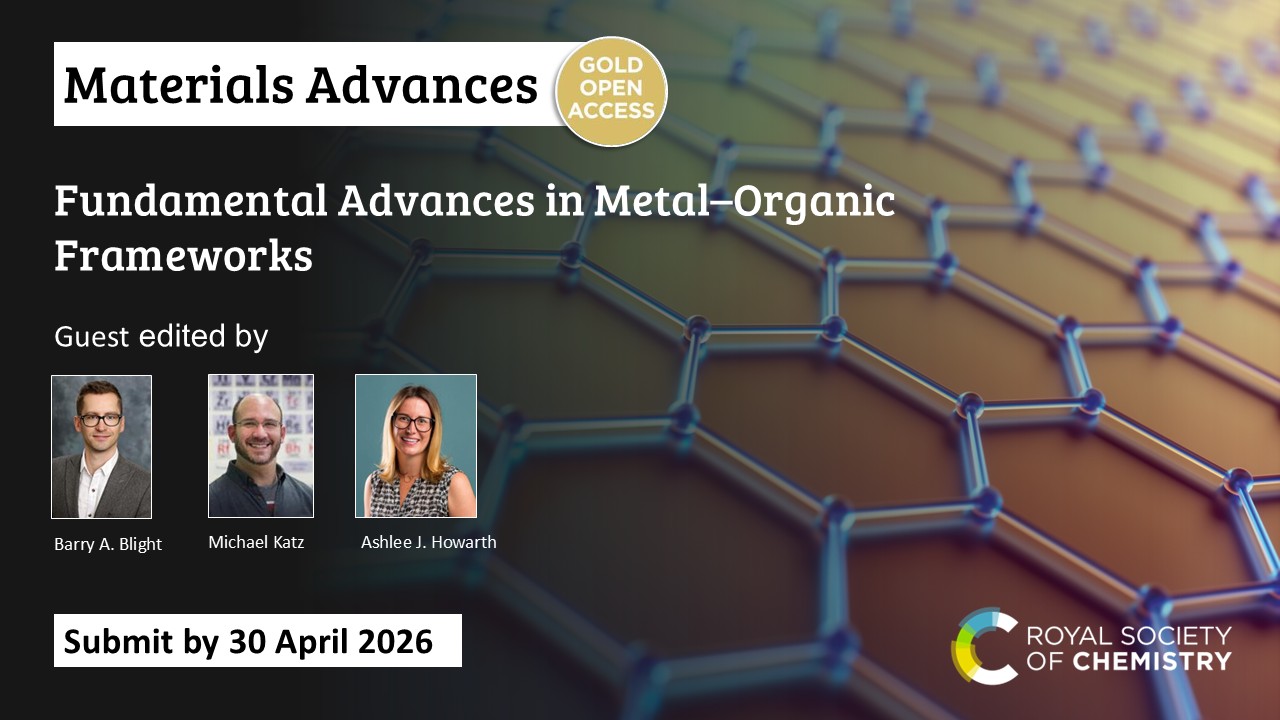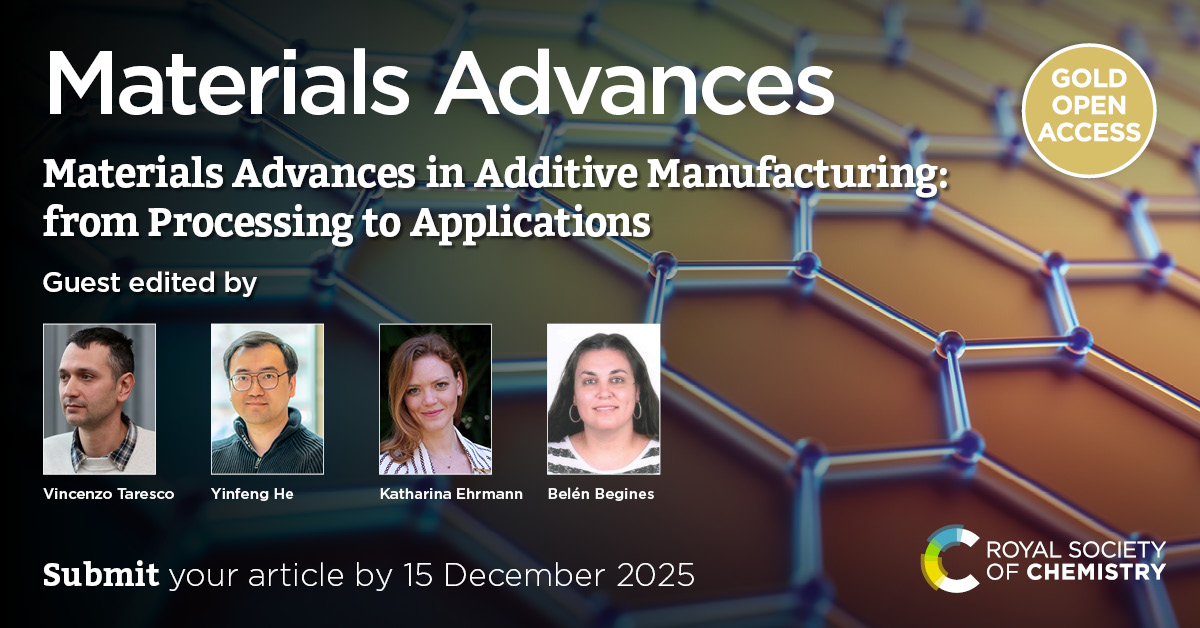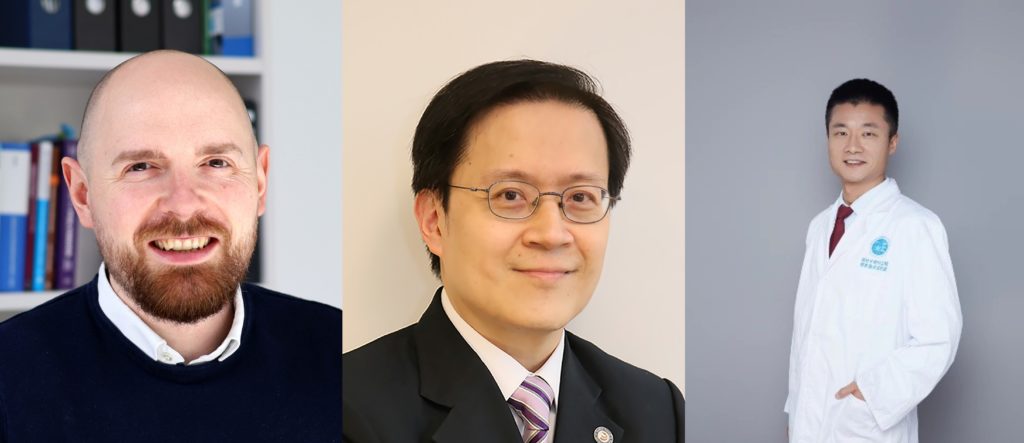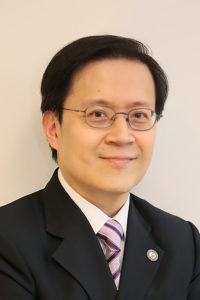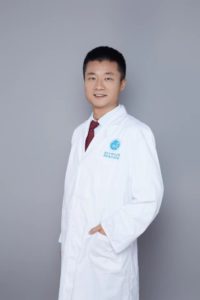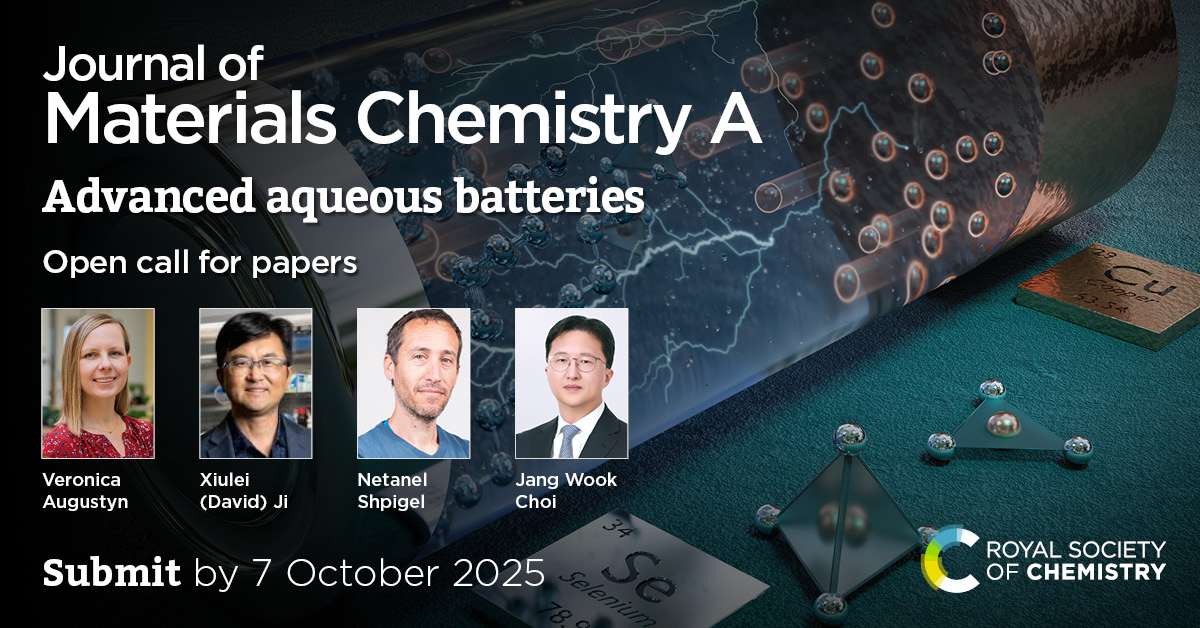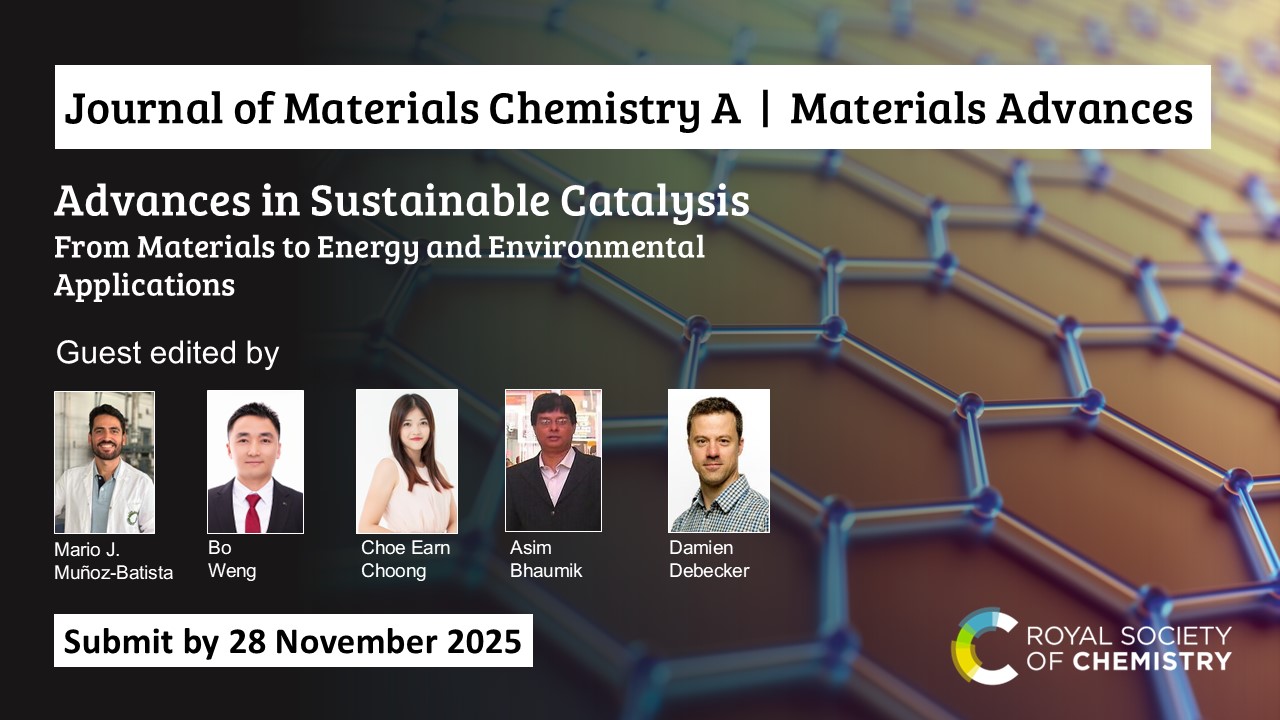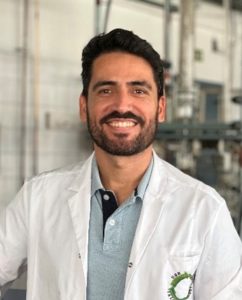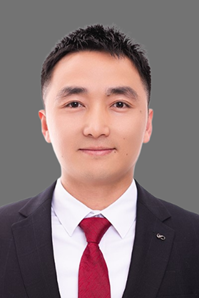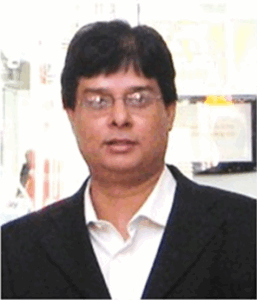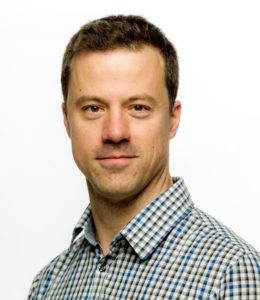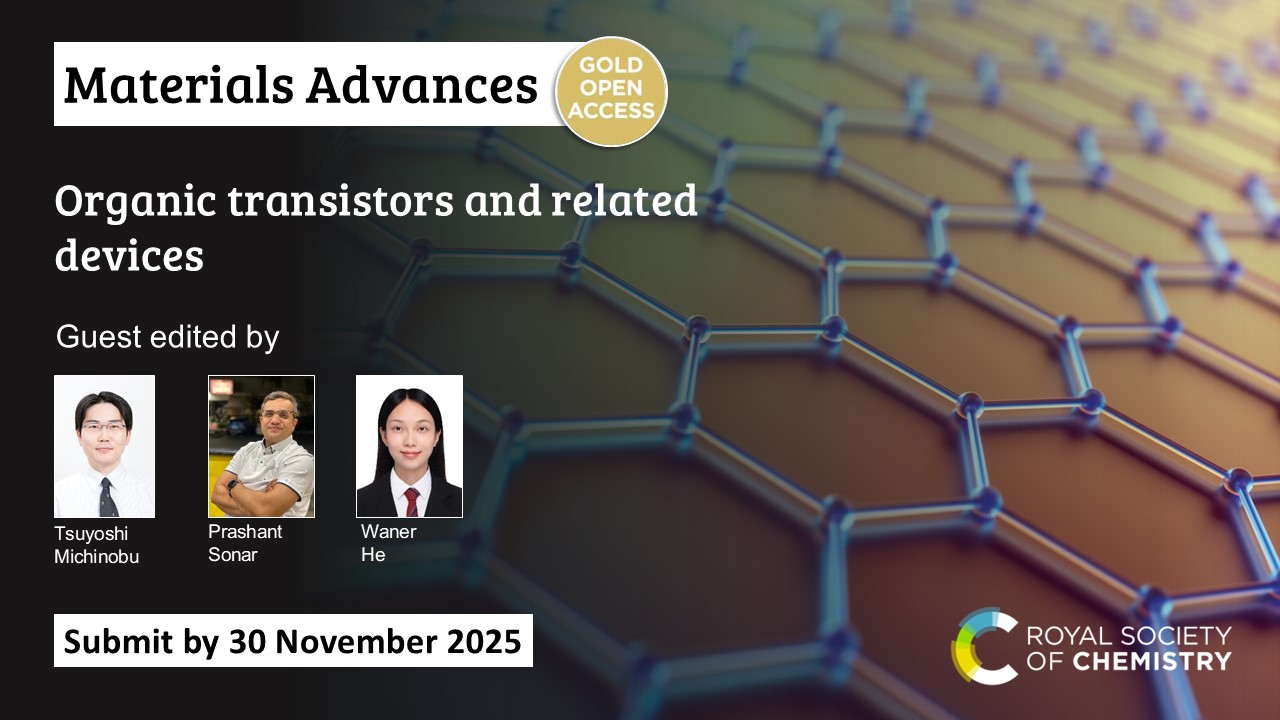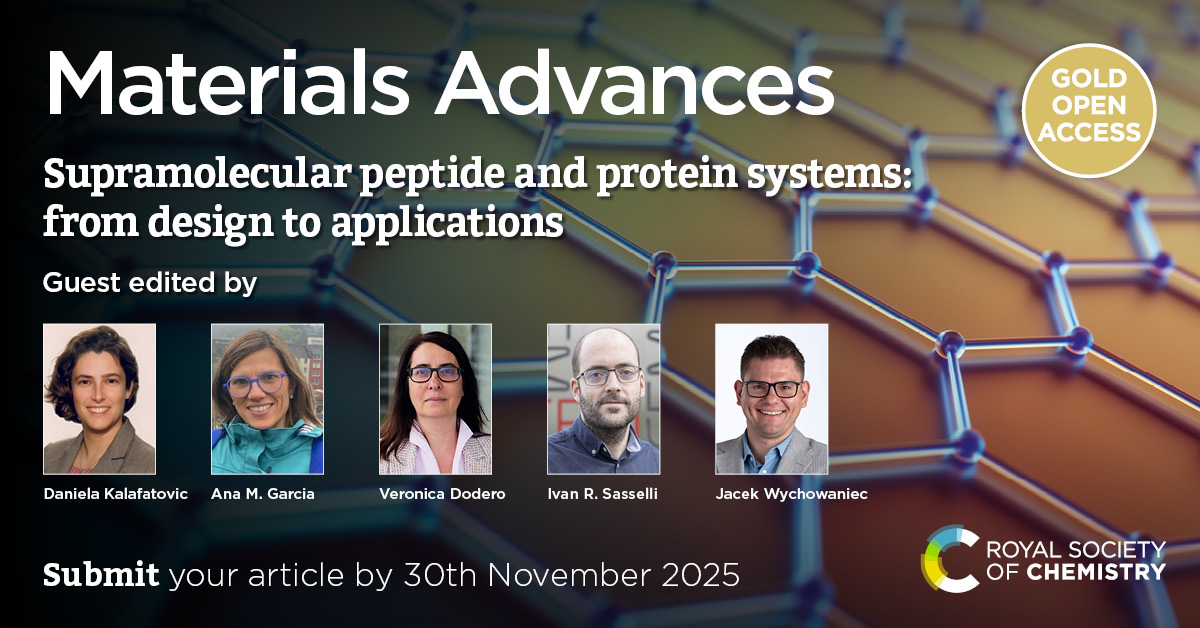Supercapacitors for a sustainable energy future
Submit your research to the collection before 26 November 2025
Journal of Materials Chemistry A and Materials Advances are delighted to announce an open call for our upcoming special themed collection on Supercapacitors for a sustainable energy future.
This themed collection is guest edited by Dr. Subrata Kundu (Central Electrochemical Research Institute, India), Prof. Chandra Sekhar Rout (Jain University, India) and Prof. Yusuke Yamauchi (The University of Queensland, Australia).
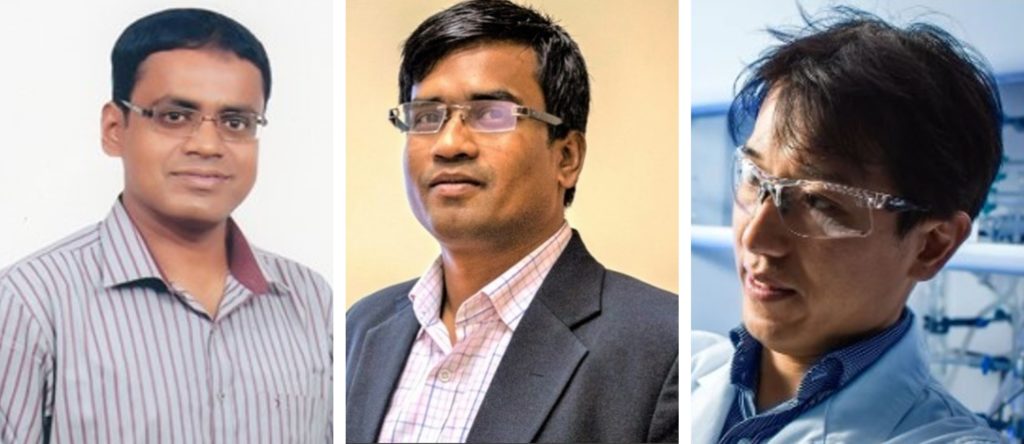
Scope
This themed collection will highlight the latest breakthroughs in supercapacitor technology, addressing the critical need for safe, affordable, and sustainable large-scale energy storage solutions. We invite contributions focused on the design, synthesis, and characterization of novel electrode and electrolyte materials, as well as fundamental investigations into electrochemical interfaces and charge storage mechanisms—including electrical double-layer capacitance, pseudocapacitance, and hybrid capacitance. We also welcome submissions on hybrid capacitors, supercapacitors, micro-supercapacitors, electrochromic supercapacitors, and self-healing supercapacitors, as well as integrated systems with multifunctional capabilities such as photodetection, gas sensing, and biosensing. Furthermore, studies that advance our understanding of charge storage mechanisms through theoretical modeling and in situ/operando spectroscopic techniques—including in situ XRD, in situ XPS, and in situ Raman spectroscopy—are highly encouraged. This collection aims to serve as a platform for cutting-edge research that deepens the fundamental understanding and promotes the practical application of supercapacitors toward a sustainable energy future.
Submission guidelines
Submissions should fit within the scope of Journal of Materials Chemistry A and Materials Advances. Please see the journals’ websites for more information on the scope, standards, article types and author guidelines.
This call for papers is open for the following article types:
- Communications
- Full papers
Open for submissions until 26 November 2025
If you would like to contribute to this themed collection, you can submit your article directly to the online submission service for Journal of Materials Chemistry A and Materials Advances. Please mention that this submission is a contribution to the Supercapacitors for a sustainable energy future collection in the “Themed issues” section of the submission form and add a “Note to the Editor” that this is from the Open Call. The Editorial Office reserves the right to check suitability of submissions in relation to the scope of both the journal and the collection, and as such inclusion of accepted articles in the final themed collection is not guaranteed.
Please note that all submissions will be subject to initial assessment and rigorous peer review to meet the usual high standards of Journal of Materials Chemistry A and Materials Advances.
We look forward to receiving your submissions. Do get in touch at materials-rsc@rsc.org if you have any queries about the collection or submission process.
Meet the Guest Editors
Dr. Subrata Kundu (Central Electrochemical Research Institute, India)
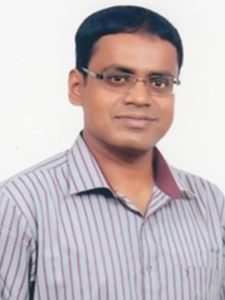
Dr. Subrata Kundu received his Ph.D degree from the Indian Institute of Technology (IIT), Kharagpur, India in early 2005. Then he moved to University of Nebraska, Lincoln, USA and later to Texas A &M University, College station, Texas, USA as a post-doc fellow (from 2005 to 2010). He was visited Texas A&M University, College station, Texas, USA again in 2016-2017 with ‘Bhaskara Advanced Solar Energy (BASE)’ fellowship for ten months. He is currently working as a Senior Principal Scientist at CSIR-CECRI, Karaikudi, India. Dr. Kundu recently received prestigious FRSC (Fellow of Royal Society of Chemistry) from London in 2023. Dr. Kundu is serving as an associate editor of prestigious ‘Journal of Materials Chemistry A’ and ‘Materials Advances’ from RSC publishers since November 2022 and ‘Scientific Reports’ from ‘Nature group publishers’ since 2015. Dr. Kundu is also joined in the editorial advisory board of ACS journal ‘ACS Applied Materials and Interfaces’ since February 2025. Dr. Kundu and his co-workers are working in the forefront area of Material Sciences with emphasizes on energy, environment, catalysis and electrocatalysis fields
Prof. Chandra Sekhar Rout (Jain University, India)
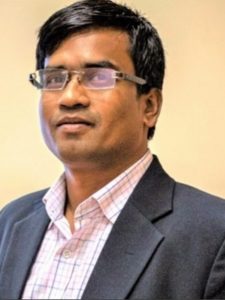
Chandra Sekhar Rout is a full Professor at the Centre for Nano & Material Sciences (CNMS), Jain University. Before joining CNMS, He was a DST-Ramanujan Fellow at IIT Bhubaneswar, India (2013-2017). He obtained his Ph.D. from JNCASR, Bangalore (2008) under the supervision of Prof. C.N.R. Rao followed by postdoctoral research at NUS, Purdue University, and UNIST. Prof. Rout has received numerous accolades, including the prestigious Ramanujan Fellowship and Young Scientist Award from the Department of Science and Technology, Govt. of India (2013), Brain Pool Research Fellowship from the National Research Foundation (NRF), S. Korea, the Emerging Investigator Award from Elsevier (2017), the IAAM Medal from the International Association of Advanced Materials (2017), Emerging Scientist award 2023 from Adv. Powder Mater. Journal-Elsevier, and the Young Researcher Award from the Venus International Foundation (2015). His research focuses on two-dimensional layered materials and their hybrids for energy and environmental applications. With over 350 publications in international journals, eight edited books, and an impressive h-index of 65 with over 16,500 citations, Prof. Rout is a leading figure in his field. He was ranked among the top 2% of scientists in India according to Stanford’s study (2020–2025).
Prof. Yusuke Yamauchi (The University of Queensland, Australia)
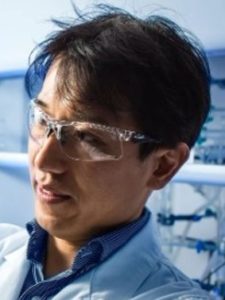
Professor Yusuke Yamauchi received his Ph.D. from Waseda University in 2007 and began his independent career at the National Institute for Materials Science (NIMS), Japan. In 2017, he moved to the University of Queensland (UQ), where he serves as a Senior Group Leader at the Australian Institute for Bioengineering and Nanotechnology (AIBN) and as a Professor in the School of Chemical Engineering. Since 2020, he has also served as the ERATO Research Director for JST-ERATO Yamauchi Materials Space-Tectonics, and since 2023, he has held a distinguished professorship at Nagoya University. He serves on the advisory boards of leading journals and is an Associate Editor for Journal of Materials Chemistry A and Chemical Engineering Journal.


